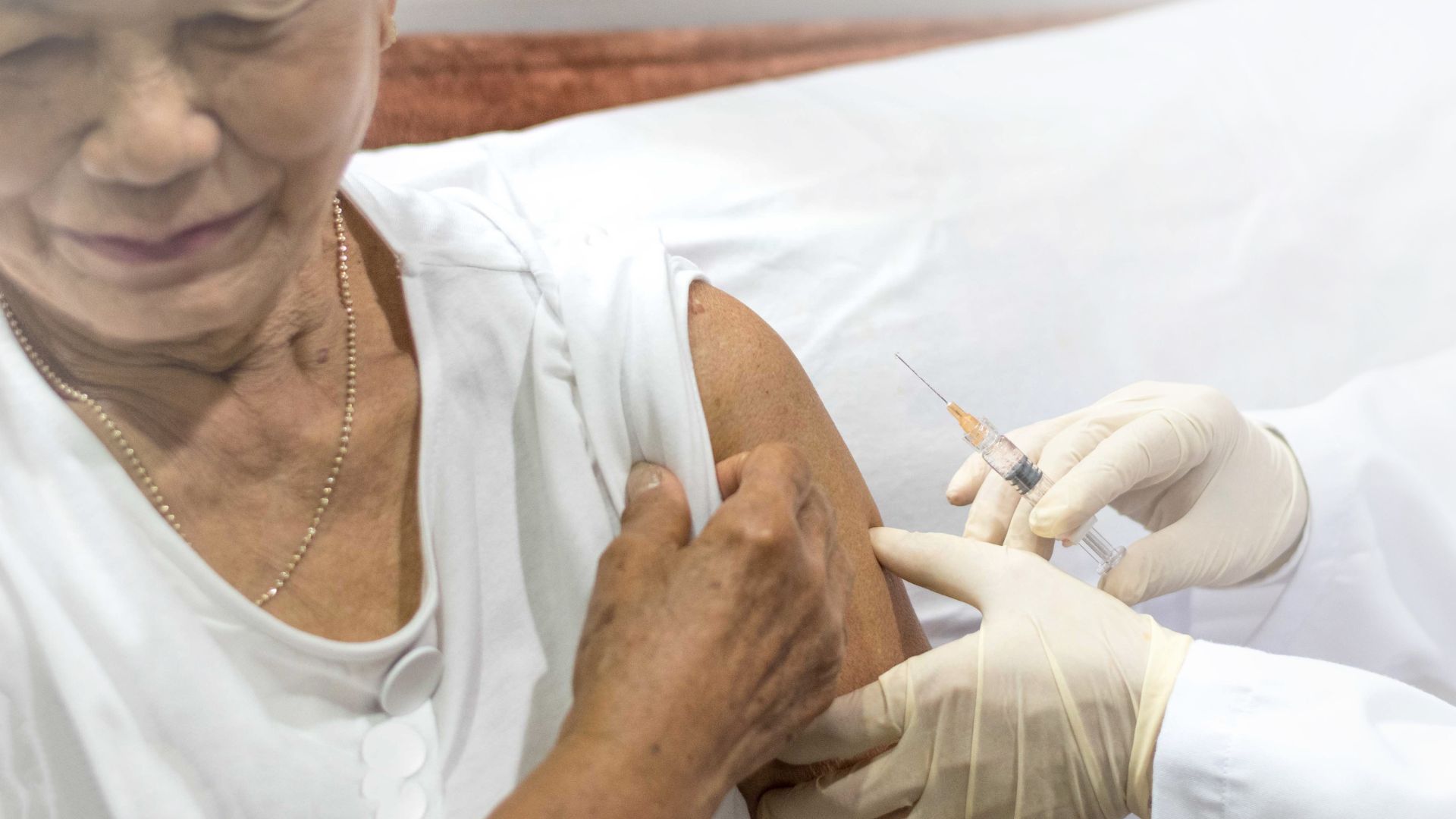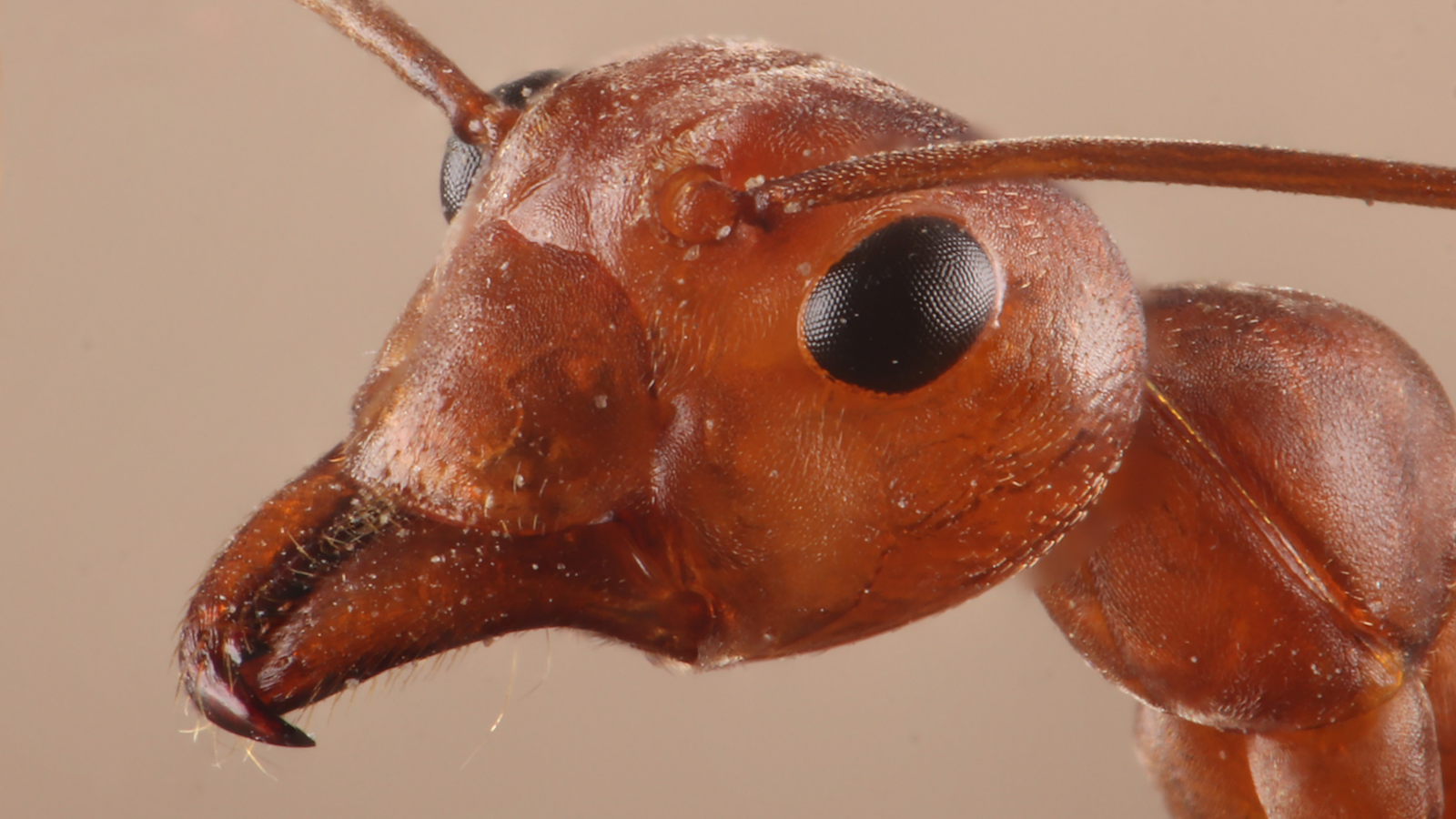Shingles vaccine may protect against dementia
An analysis of thousands of healthcare records adds to mounting evidence that people who get the shingles vaccine in their 70s may reduce their dementia risk over the following seven years.

People who are vaccinated against shingles in their 70s may reduce their risk of dementia over the next seven years, an analysis suggests.
However, one expert told Live Science that the study is missing a key analysis, the omission of which casts some doubt on the strength of the findings.
Mounting evidence suggests that viral infections may raise the risk of later dementia — conditions that impair one's ability to remember, think and make decisions and affect around 5.8 million people in the U.S. In particular, research has linked shingles infections, caused by the varicella-zoster virus that also causes chickenpox, to an increased dementia risk, although some studies suggest this link may not exist.
After invading the body, varicella-zoster viruses hide within specific nerve cells, where they can lay dormant for decades while being kept in check by the immune system. Later in life, when the immune system works less effectively, the viruses can reactivate and cause shingles, a condition characterized by a painful, blotchy rash that typically appears on one side of the body or face.
Related: A man's rare gene variant may have shielded him from devastating form of early Alzheimer's
In theory, it is the inflammation and other, yet-unknown bodily changes resulting from varicella-zoster reactivation that may increase the risk of dementia, said Ruth Itzhaki, a professor emeritus of molecular neurobiology at the University of Manchester, who was not involved in the new study.
Supporting this theory, previous studies have found lower dementia rates among people who received the shingles vaccine Zostavax compared with unvaccinated people. However, these studies often rest on the assumption any differences in dementia risk are due to vaccination status. In reality, other factors — like a person's likelihood of following diet and exercise recommendations — also play a role and thus muddy the waters of how vaccination, alone, affects disease risk.
Sign up for the Live Science daily newsletter now
Get the world’s most fascinating discoveries delivered straight to your inbox.
To get around this issue, scientists have now analyzed health records collected from people in their late 70s and older, who were living in Wales during the rollout of the Zostavax vaccine in September 2013. People born on or after Sept. 2, 1933 were eligible for the shot, while those born earlier were ineligible. The results of the analysis, which have yet to be peer-reviewed, were posted May 25 to the preprint server medRxiv.
Around 50% of people born in the year following the eligibility cutoff date received the shot during the rollout, the scientists found, and those eligible for the vaccine had lower rates of shingles than those who were ineligible. They then compared dementia rates in people born in the year before the cutoff date with those born within roughly a year after, over a seven-year period after vaccination. In total, this analysis included more than 56,000 people.
People who were eligible for the vaccine were 8.5% less likely to be diagnosed with dementia in the follow-up period, compared with those ineligible. Through further analysis, the scientists estimated that people who were eligible and actually got vaccinated had around a one-fifth lower risk of being diagnosed with dementia, compared with the ineligible group.
However, the scientists did not directly compare dementia rates among people who were eligible and vaccinated with those who were eligible and unvaccinated.
"They have the data to address this question but they give a convoluted, weak rationale to justify why they did not do this," which opens up questions on why they did not present it, Dr. Devangere Devanand, professor of psychiatry and neurology at the Columbia University Medical Center in New York, told Live Science in an email. Still, even with this omission, the findings still add to the idea that shingles may increase the risk of dementia, Devanand said.
"They used a novel method to add further evidence to the idea that viruses may increase the risk of Alzheimer's disease and dementia either through direct damage [to the brain] or inflammation, which has been supported by several other studies," Itzhaki told Live Science.
"I think all these vaccination results [from the current and previous studies] are very exciting," Itzhaki said.
(Note that a newer, more-protective shingles vaccine called Shingrix is now recommended over Zostavax in the U.S., and the study doesn't address Shingrix's effects on dementia risk, the authors noted.)

Carissa Wong is a freelance reporter who holds a PhD in cancer immunology from Cardiff University, in collaboration with the University of Bristol. She was formerly a staff writer at New Scientist magazine covering health, environment, technology, nature and ancient life, and has also written for MailOnline.










